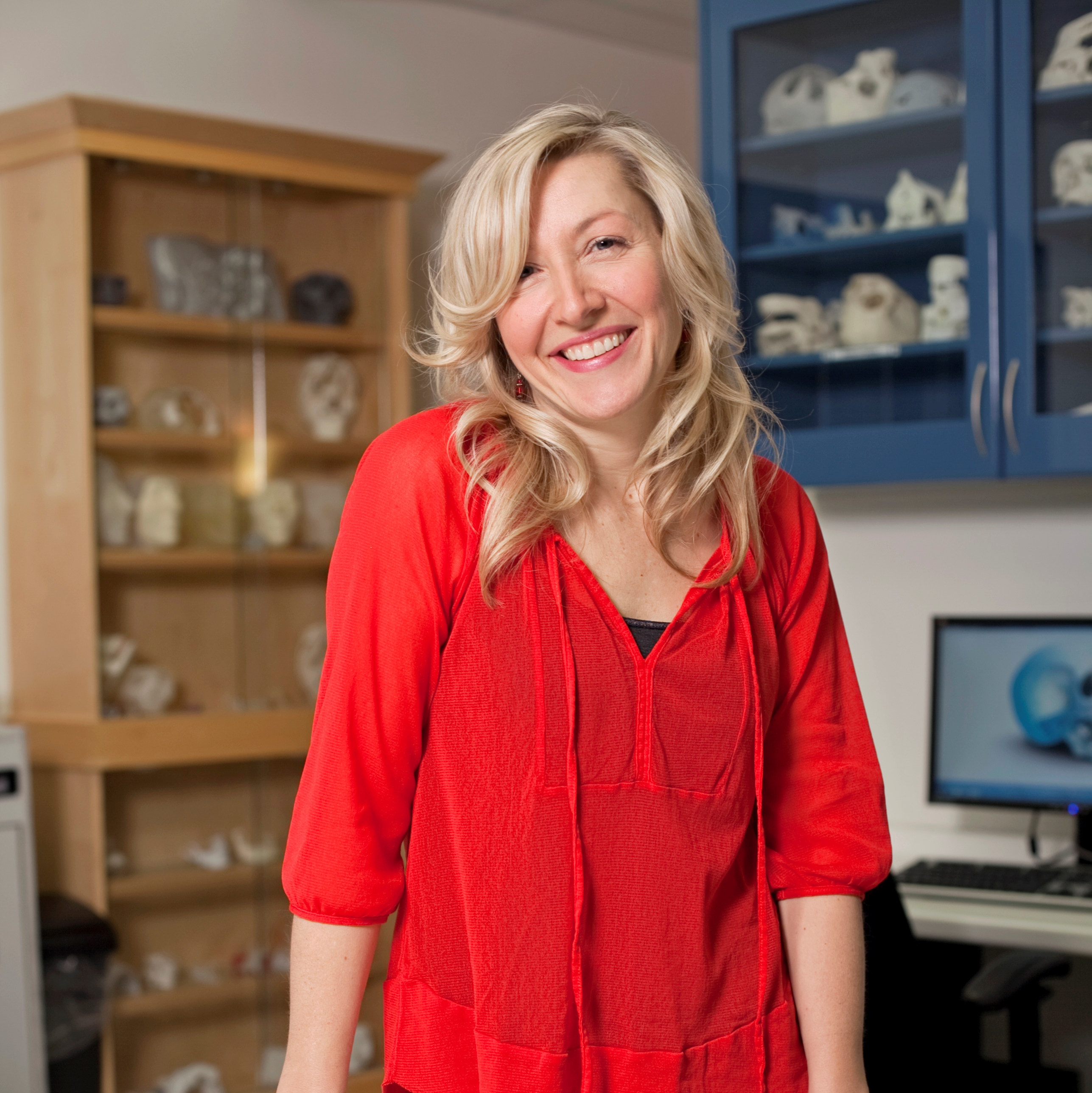
Dr. Jana Rieger, a speech-language pathologist with the U of A's Faculty of Rehabilitation Medicine.
"Every day 43 Albertans hear the words you have cancer," says Myka Osinchuk, CEO of the Alberta Cancer Foundation. "One way we can propel discovery and make a difference for those 43 people is by creating an environment for collaboration-bringing science, patients and care together in a new and innovative way. That's what these investments will do."
The Alberta Cancer Foundation's new investment model means every decision is focused on improving patient outcomes. This new "transformative program" funding is the first step in a long-term vision that will accelerate discovery and translate scientific research into practice. It is also part of the Alberta Cancer Foundation's commitment to invest $120 million to cancer research, treatment and care by 2017.
Dr. Jana Rieger, a University of Alberta scientist and research director at the Institute for Reconstructive Sciences in Medicine (iRSM), is one of four successful researchers to receive funding from the Transformative Program competition, which originally received applications from 56 research teams in Alberta. Twelve teams were invited to present their proposals in front of a a high-calibre review panel made up of national cancer researchers, informed patients and stakeholders from the business community. Rieger will receive $1.9 million over the next five years for her project.
Rieger, a speech-language pathologist with the U of A's Faculty of Rehabilitation Medicine, works with head and neck cancer patients at Misericordia Hospital's iRSM to improve their quality of life. After life-saving treatment, patients require reconstructive surgery to restore their appearance and the essential functions that most of us consider natural-the ability to speak, to chew well enough to eat and swallow their food. Swallowing impairments often lead to nutritional deficiencies or tube-feeding dependencies and rehab for these patients can include countless hours and trips to clinics for assessments.
Dr. Rieger and her team will use the Alberta Cancer Foundation investments to test a technology that can be used remotely and comfortably in a patient's home. An adhesive sensor is applied under the jaw and the technology sends patient data to health-care professionals, anywhere in the province. This will allow patients to be more independent during and after treatment, while still receiving the care they need.
"It's an important conversation about whether we've done enough for the survivors of head and neck defects and the medical community has really embraced the new mission of doing more," Rieger says. "Of course the first focus will always be a cure. But now we all understand that's just the start. After their treatment, after they survive, we must do our best to give patients back as much of their lives as possible."